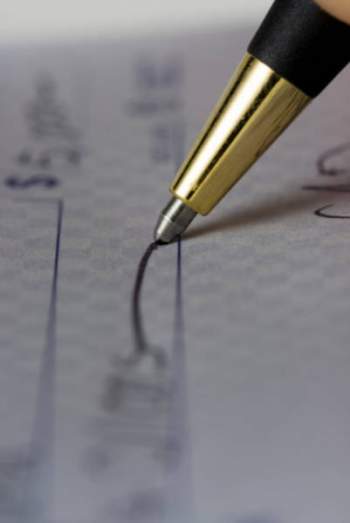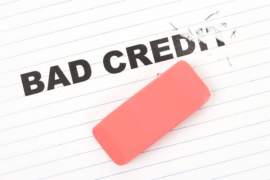
What to Do With Lost, Destroyed, or Stolen Checks

Though any user of checks should take measures to avoid any such circumstance, it is entirely likely that at some point a check user will lose a check or may even have a check stolen from him or her. To deal with such a lost or stolen check, the first step is to get in contact with the issuing institution and inform it of the situation. Letting your bank know to put a stop on the check is important, especially when dealing with stolen checks.
For a lost check, it is still a good idea to put a stop on the check, especially if the check was lost in a public place. However, if there's some chance that a trusted party might find the lost check, then it makes sense to hold off on putting a stop on the check for at least some time.
Putting a stop on a check will come with a price, generally between $18 and $32, and this may not be worth it if there is a chance that the lost check will be found along with a lack of risk that the lost check will be stolen.
For a stolen check, however, putting a stop on the check is essential, regardless of the state the check may have been in when it was stolen. Even if stolen checks have not been endorsed or signed, putting a stop to them quickly will ensure that there is even less chance they will function should the thief attempt to forge the signature and submit the stolen check for fraudulent payment. There might still be some problems arising from the stolen check, but putting a stop to the check's payment quickly will help to at least minimize the risk.
For a lost check of a specific form, procedures might be slightly different, however. A lost traveler's check, for instance, might be repaid if the purchaser of the check has the proper information. In such an instance, the purchaser of the traveler's checks should quickly call the issuer of the lost or stolen checks and be ready to provide information including the serial numbers of those checks and the date, location, and details of the theft. With the help of an agent from the issuer's company, it is entirely likely that the purchaser will be able to quickly receive replacement checks.
For a lost cashier's check or certified check, the procedure is yet again slightly different. A lost check of this nature should be reported quickly to the issuing institution as well and a stop should be put on the lost check, if at all possible. But lost or stolen checks of this type are often difficult to obtain repayment as, for the most part, the only way to receive such repayment is from section 3-312 of the Uniform Commercial Code, which not all states have adopted.
Even in the case that such Code applies, the law would require banks to repay lost or stolen cashier's or certified checks only 90 days after the check was issued and only if the bank has not paid on the check already. If the law has not been adopted, then the bank may not be under any kind of obligation to pay back the lost check. The result of this is that it is often quite difficult to receive repayment for lost or stolen certified or cashier's checks, though this does not mean that one should not attempt to do so, at least by getting in contact with the issuing institution.
If a check is destroyed unintentionally, then many of the same above procedures will apply, as a destroyed check is equivalent to a lost check a great deal of the time. If the check is destroyed intentionally, however, then that will likely discharge all obligation surrounding that check and the destroying party will be unlikely to obtain any kind of payment on that check.
NEXT: Knowing the Rules of Consumer Fund Transfers





















